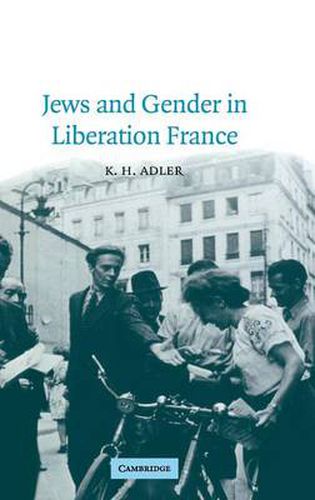Readings Newsletter
Become a Readings Member to make your shopping experience even easier.
Sign in or sign up for free!
You’re not far away from qualifying for FREE standard shipping within Australia
You’ve qualified for FREE standard shipping within Australia
The cart is loading…






This book takes a new look at occupied and liberated France through the dual prism of race (specifically Jewishness) and gender - core components of Vichy ideology. The imagining of liberation, and the potential post-Vichy state, lay at the heart of resistance strategy. Their transformation into policy at liberation forms the basis of an enquiry that reveals a society which, while split deeply at the political level, found considerable agreement over questions of race, the family and gender. This is explained through a new analysis of republican assimilation which insists that gender was as important a factor as nationality or ethnicity. A new concept of the ‘long liberation’ provides a framework for understanding the continuing influence of the liberation in post-war France, where scientific planning came to the fore, but whose exponents were profoundly imbued with reductive beliefs about Jews and women that were familiar during Vichy.
$9.00 standard shipping within Australia
FREE standard shipping within Australia for orders over $100.00
Express & International shipping calculated at checkout
This book takes a new look at occupied and liberated France through the dual prism of race (specifically Jewishness) and gender - core components of Vichy ideology. The imagining of liberation, and the potential post-Vichy state, lay at the heart of resistance strategy. Their transformation into policy at liberation forms the basis of an enquiry that reveals a society which, while split deeply at the political level, found considerable agreement over questions of race, the family and gender. This is explained through a new analysis of republican assimilation which insists that gender was as important a factor as nationality or ethnicity. A new concept of the ‘long liberation’ provides a framework for understanding the continuing influence of the liberation in post-war France, where scientific planning came to the fore, but whose exponents were profoundly imbued with reductive beliefs about Jews and women that were familiar during Vichy.